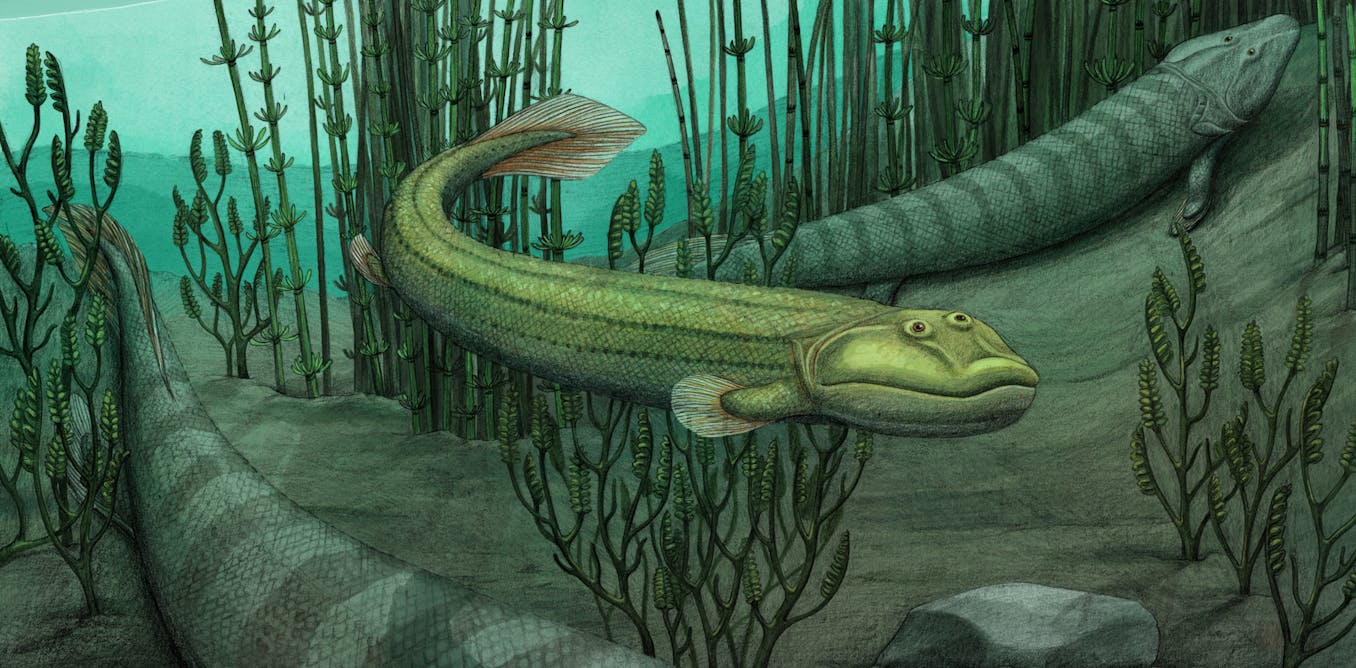Why do hammerhead sharks have hammer-shaped heads?
The first hammerhead shark was likely the result of a genetic deformity. A biologist explains how shark DNA reveals hammerheads’ history.
Gavin Naylor, Director of Florida Program for Shark Research, University of Florida •
conversation
July 25, 2022 • ~7 min
July 25, 2022 • ~7 min
When did the first fish live on Earth – and how do scientists figure out the timing?
A biologist explains how researchers nail down the age of ancient fossils thanks to a physical process called radioactive decay.
Isaac Skromne, Assistant Professor of Biology, University of Richmond •
conversation
July 18, 2022 • ~8 min
July 18, 2022 • ~8 min
Ancient salamander was hidden inside mystery rock for 50 years – new research
The discovery shakes up what scientists thought they knew about salamander evolution.
Susan Evans, Professor of Vertebrate Morphology and Palaeontology, UCL
• conversation
July 15, 2022 • ~10 min
July 15, 2022 • ~10 min
Evolutionary tree of life: modern science is showing how we got so much wrong
DNA analysis is beginning to reveal how wrong the long-accepted evolutionary tree is.
Matthew Wills, Professor of Evolutionary Palaeobiology at the Milner Centre for Evolution, University of Bath •
conversation
June 23, 2022 • ~7 min
June 23, 2022 • ~7 min
Black death: how we solved the centuries-old mystery of its origins
The Black Death evolved around Kyrgyzstan, according to new research.
Philip Slavin, Associate Professor of History, University of Stirling
• conversation
June 20, 2022 • ~7 min
June 20, 2022 • ~7 min
What is it about the human brain that makes us smarter than other animals? New research gives intriguing answer
Human brains seem to be wired differently to those of chimps or macaques.
David Menon, Professor, Head of Division of Anaesthesia, University of Cambridge •
conversation
May 27, 2022 • ~8 min
May 27, 2022 • ~8 min
Showing you're stressed may make you more likeable – new research
A first-of-its-kind study investigated what’s going on in other people’s minds during your nail-biting moments.
Jamie Whitehouse, Research Fellow, Department of Psychology, Nottingham Trent University
• conversation
May 13, 2022 • ~5 min
May 13, 2022 • ~5 min
/
25







